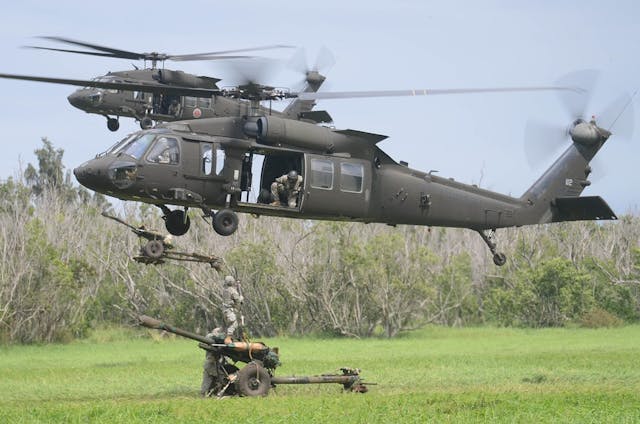Background and Growth of the UH 60 Black Hawk Helicopter
Background and Growth of the UH 60 Black Hawk Helicopter
Blog Article
The Effect of Sustainable Practices on the Future of Aircraft Procedures and Emissions Reduction
As the aeronautics market faces boosting analysis over its ecological impact, the adoption of lasting techniques becomes an essential pathway toward future aircraft procedures and emissions decrease. Developments in lasting air travel fuels and improvements in hybrid propulsion modern technologies stand at the leading edge of this change, appealing considerable reductions in greenhouse gas exhausts. The effective assimilation of these efforts pivots on a variety of variables, including governing frameworks and market partnership. The question continues to be: exactly how will these developing methods improve the dynamics of air travel and contribute to a much more sustainable future?

Review of Lasting Practices
Sustainable practices in aircraft operations include a series of approaches focused on lowering ecological impact while preserving functional performance. These methods are important in the aviation industry's dedication to decreasing its carbon impact and sticking to worldwide environmental requirements. Trick efforts consist of enhancing trip paths to minimize gas intake, boosting upkeep methods to ensure airplane run at peak effectiveness, and carrying out innovative modern technologies such as winglets and light-weight materials that improve aerodynamics.

Training and engaging staff on sustainability practices likewise play an important duty, fostering a culture of ecological duty within companies. In general, the combination of these sustainable methods not only assists lower exhausts yet also boosts the lasting practicality of the aeronautics market, guaranteeing it satisfies the demands of both customers and regulatory bodies while contributing to worldwide sustainability goals.
Ingenious Fuel Alternatives
Many cutting-edge fuel choices are becoming crucial solutions to decrease the aviation sector's dependence on traditional fossil gas. Among these choices, Sustainable Aeronautics Fuels (SAFs) have actually obtained significant attention due to their possible to decrease lifecycle greenhouse gas discharges by as much as 80% compared to standard jet fuels. SAFs are originated from different feedstocks, including waste oils, agricultural deposits, and also algae, making them a versatile alternative for the industry.
One more encouraging option is hydrogen gas, which, when utilized in gas cells, generates only water vapor as a result. This zero-emission prospective presents a significant opportunity for decarbonizing trip procedures, particularly for short-haul trips and local airplane. Additionally, electrical propulsion systems are being discovered, leveraging battery technology to power aircraft. While present battery capability limits variety and payload, continuous improvements might quickly make electric flights practical for particular applications - uh 60.
Finally, biofuels stemmed from biomass are being explored, providing a renewable option that can be blended with conventional fuels. Jointly, these innovative gas choices represent a crucial action towards accomplishing a lasting air travel ecological community, aligning with international exhausts reduction targets and enhancing the sector's ecological stewardship.
Technical Developments in Aviation

Just how can technical improvements improve the future of air travel? The integration of sophisticated modern technologies is pivotal in changing airplane operations, improving efficiency, and decreasing emissions. Advancements such as hybrid and electric propulsion systems are at the forefront, promising considerable decreases in gas consumption and greenhouse gas exhausts. These systems utilize advancements in battery innovation and power monitoring, allowing aircraft to operate with a reduced environmental impact.
Additionally, the execution of sophisticated materials, such as light-weight composites, adds to boosted the rules of aerodynamics my explanation and gas performance. Using expert system and artificial intelligence in trip procedures optimizes route preparation and minimizes gas melt by making it possible for real-time modifications based on climate and website traffic problems. Furthermore, the development of independent and remotely piloted aircraft systems stands to reinvent cargo and passenger transport, potentially raising effectiveness while reducing human mistake.
Additionally, sustainable air travel technologies, including advanced air traffic management systems, can simplify procedures and decrease congestion, bring about reduced emissions during flight. These improvements jointly represent a standard change in air travel, guaranteeing a future where sustainability and functional efficiency are intertwined, thereby supporting the industry's commitment to reducing its ecological impact.

Governing Framework and Conformity
Because of the expanding emphasis on environmental stewardship within the aeronautics sector, the governing framework regulating airplane procedures is developing to promote lasting methods. Regulatory bodies, such as the International Civil Aviation Company (ICAO) and various national aviation authorities, are presenting strict standards intended at decreasing discharges and boosting functional performance.
These laws frequently consist of the fostering of Sustainable Air travel Fuel (SAF), which has actually been recognized as a crucial component in accomplishing reduced carbon impacts. Additionally, conformity with these regulations calls for airline companies to implement operational practices and advanced innovations, such as maximized trip courses and boosted air website traffic monitoring, to decrease gas usage.
Furthermore, the enforcement of emissions trading schemes and carbon countering campaigns is ending up being significantly i was reading this widespread, engaging airline companies to monitor and report their emissions precisely. Non-compliance can lead to substantial fines, hence pressing drivers to prioritize sustainability in their business models.
Ultimately, the advancing regulative landscape not just drives innovation and financial investment in green modern technologies yet also cultivates a society of accountability within the aeronautics sector. As these structures proceed to develop, the focus on sustainable methods will certainly be indispensable to achieving the field's long-term ecological objectives.
Future Trends in Airplane Operations
As the air travel industry adapts to an increasingly rigid regulatory setting, future fads in airplane procedures are established to concentrate on ingenious solutions that even more improve sustainability and performance - uh 60. Trick developments will likely consist of the adoption of sophisticated air traffic administration systems, which use real-time information and expert system to optimize flight courses, minimizing gas intake and emissions
An additional considerable pattern is the raised combination of sustainable aviation fuels (SAFs) These options to traditional jet fuel, obtained from eco-friendly resources, can substantially reduce lifecycle greenhouse gas exhausts. The market's commitment to SAFs will likely accelerate as airline companies work together with gas manufacturers to make sure schedule and cost-effectiveness.
In addition, the press in the direction of electrification and hybrid propulsion systems is getting momentum. Emerging airplane styles will include these innovations, using quieter and more reliable procedures, specifically for short-haul flights.
Verdict
To conclude, the assimilation of lasting practices in airplane operations holds considerable possibility for exhausts decrease and enhanced performance. The fostering of lasting air travel fuels, coupled with developments in hybrid and electrical propulsion systems, is necessary for reducing lifecycle greenhouse gas emissions. Additionally, enhancing flight courses and accepting cutting-edge technologies add to a advice quieter and much more eco-friendly air travel industry. Jointly, these efforts straighten with global sustainability goals and lead the way for a greener future in air travel.
Advancements in lasting aviation gas and innovations in crossbreed propulsion technologies stand at the center of this change, encouraging significant reductions in greenhouse gas discharges.Various innovative fuel choices are arising as pivotal remedies to reduce the aeronautics industry's dependence on standard fossil gas - uh 60. Among these choices, Sustainable Air travel Fuels (SAFs) have actually gained substantial attention due to their potential to decrease lifecycle greenhouse gas exhausts by up to 80% contrasted to standard jet gas.An additional considerable pattern is the raised combination of lasting air travel fuels (SAFs) The adoption of lasting aeronautics fuels, combined with developments in electric and hybrid propulsion systems, is vital for reducing lifecycle greenhouse gas exhausts
Report this page